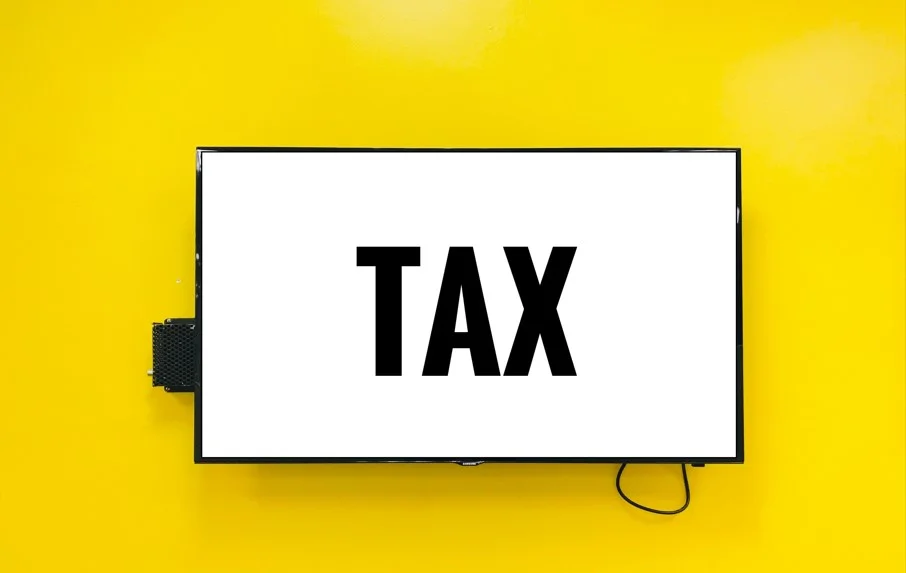If a product is out of the financial reach of the vast majority and serves no functional use, it is regarded as a “luxury”. This could either be a sports car, a high-class house and lot for sale, or jewelry.
Inheritance-Related Tax Inequality
To ensure that the public is comfortable knowing where their taxes are going, taxation should be in line with good governance.
Economic inequality has gained prominence in the global policy discussion after years of essentially being overlooked. The apparent effects of globalization and technical advancement, as well as the expense of reversing these trends, are causing worry in industrialized economies. The question is whether inequality poses a significant barrier to boosting growth and eradicating poverty in developing economies when inequality is higher.
Taxes deduct a portion of your income if you follow the law, work to support yourself, and save money for the future. However, you don’t have to pay any federal taxes if you are fortunate enough to receive an endowment. For a variety of reasons, extreme inequality is concerning. Current law permits nearly unrestricted transfers of wealth, which perpetuates these inequalities, establishes wealthy dynasties, and restricts economic and social mobility.
Wealthy people can employ various tax-avoidance strategies, including annual, tax-free gifts to their children. Due to the frequent legality and, when illegal, poorly enforced practice for estate tax purposes, business owners can transmit multiple times more with little to no estate tax.
There are other methods besides inheritance taxes for reducing inequality. It is crucial to stop taxing capital gains at lower rates than earned income in order to make college or other post-secondary education more affordable for persons with limited financial resources. However, it will take time to put policies in place and much longer for them to start working to reduce income inequality.
According to research firm IBON, the proposed tax on a luxury item or luxury goods is a cynical attempt to divert attention from the pressing need to tax the riches of the nation’s few billionaires and is a significantly inferior proposal to a billionaire wealth tax. While a wealth tax can generate significantly more money for social and economic development, it cannot be a replacement for a higher consumption tax on luxury products.
Equitable Distribution That Can Foster Growth and Promote Equality

There is definitely a compelling justification for the allocation of resources from those in the hierarchy to those at the bottom in countries, where development is good but benefits the poor, significantly less than the non-poor. One strategy to lessen inequality while also encouraging future growth and the eradication of poverty is to provide impoverished children with access to better education and pay for it by raising taxes on the rich.
Recognizing that a more equitable allocation of resources can be beneficial for development is indeed a thing; having the appropriate tools to put that knowledge into practice is quite another. These tools actually exist, including regulation, inclusive growth initiatives, financial transfers, and progressive taxes. However, underdeveloped economies barely use them at all.
According to Higgins and Lustig 2016, “Indirect taxes on local and imported products and services are a common source of revenue for developing economies relative to established economies. Because they tax expenditures rather than revenue and because wealthier people save a larger percentage of their income, indirect taxes are deemed to be regressive. In addition depending on the design of tax rates and the consumption patterns of people at different income levels, indirect taxation in developing economies may even make poverty worst.”
If done correctly, income redistribution will alleviate poverty by lowering inequality. However, it might not significantly speed up growth other than by easing social tensions brought on by inequality and enabling the poor to invest more money in building up their human and material assets.
It is crucial to directly invest in opportunities for the underprivileged. Contributions to the poor shouldn’t just be in cash; they should also increase their ability to generate income now and in the future. Effective resources include access to medical care, microcredit, food electricity, and transportation as well as education and training. It is possible to alleviate inequality and poverty in the short term and help poor households increase their income over the medium and long term by funding these programs through progressive taxation and offering cash transfer incentives to these households.
Reliable and helpful ways to improve equality
As predicted by the efficiency wage theory, such policies may actually boost labor productivity in developing economies by enhancing workers’ physical health. Even though they are polarizing in industrialized countries due to the potential harm they might do to employment when the minimum wage is set too high, minimum wage regulations produce more equity in the distribution of income.
By enhancing the job and training incentives for minority groups, anti-discrimination legislation can help advance equality and encourage development. Even if the inequality brought on by corruption is frequently difficult to notice, anti-corruption initiatives are arguably the greatest candidates for improving both growth and economic equality.
What Is the Luxury Tax and How Does It Help With Implementing Equality?

First, what are considered luxury products or Luxury goods? Luxury goods are the opposite of necessities, which are bought by anyone despite their income level or wealth, Luxury goods are products that are considered not essential to human survival but are desired by society and culture. These items and services could be personal, full-time help or chefs, purely electric vehicles and other expensive cars, purely coconut sap sugar, invasive cosmetic procedures, private jets, jewelry, or buying from the yacht industry. This conspicuous consumption is sought after by society but is essentially good.
The luxury tax is similar to the “Window Tax” in England back in 1696, where, in theory, people with bigger houses are expected to have more windows, which means they are able to pay more taxes than others. This would result in most wealthy English families boarding up their homes and hiding their windows or constructing homes with fewer windows. Thus the name of the supposed tax is Window Tax.
While there is controversy around all taxes, some are more divisive than others. In the region where it is imposed, a sales tax is typically charged to every customer of products and services. They are perceived as particularly demanding by lower-income consumers when they are imposed on necessities like food and medicine.
Products are subject to what are known as “sin taxes,” which are paid by all consumers, regardless of wealth. By enacting taxes, the government hopes to discourage the use of certain goods while also collecting money from those who continue to purchase them. Also, tariffs on products that are only available to the wealthiest consumers, who presumably have the money to pay the higher price.
In order to boost government revenue or pay for another significant expense without raising taxes on the general public, luxury taxes are sometimes implemented during periods of conflict. If the government needs to raise more money, it may impose luxury taxes on things considered common or regular. Luxury taxes frequently target expensive residences.
Value added tax
As opposed to income, VAT (Value Added Tax) is based on consumption, as opposed to a progressive income tax, which increases taxes on the richer people. Advocates claim that, unlike income taxes, VAT increases government revenue without burdening rich people more. It is also thought to be less complicated and inconsistent than a conventional sales tax, with fewer compliance problems.
In some places of the world, the term “VAT” has come to mean something bad. Sen. Ralph Recto, a leading advocate of VAT in the early 2000s in the Philippines, was ousted from office when he stood for reelection. However, the public finally came to accept the tax in the years that followed its installation. Recto eventually returned to the Senate and started advocating for an increased VAT.
Sales tax
The government charges a consumption tax known as a sales tax on the purchase price of goods and services. Depending on local regulations, a company may be responsible for sales taxes in a particular jurisdiction if it has a presence there, which could be a physical site, a worker, or an affiliate. Only the final consumer of a good or service is required to pay conventional or retail sales taxes.
At the point of sale, a sales tax is often assessed as a percentage of the retail price. The state sales tax is in addition to any local or municipal taxes that are levied.
States, counties, and municipalities may impose their own sales taxes, and different jurisdictions impose various sales taxes. Use taxes, which are levied on goods that are brought into one country from another, are closely related to sales taxes. They would have to pay the same amount of local sales tax as if they had purchased it at home.
Difference between VAT sales and sales tax
At the initial point of sale, a sales tax is solely paid. The sole party responsible for paying sales tax is the retail customer. As opposed to this, the VAT is gathered numerous times throughout the creation of a finished good. The VAT tax is gathered and paid to the government each time a sale or value addition takes place.
Excise tax
An excise tax is a regulated tax imposed at the point of sale on particular items or services, such as alcohol, cigarettes, and gasoline. Excise taxes are domestic taxes applied within a government infrastructure as opposed to foreign taxes levied across international borders.
Excise taxes are mostly paid by corporations. Many of them are paid for by businesses, who subsequently charge customers more as a result. Wholesalers get excise taxes from merchants, who then factor them into product pricing and raise overall retail prices as a result.
Excise taxes can be imposed by federal, state, and local governments. Excise tax revenue accounts for a relatively modest fraction of total revenue, with income tax serving as the principal source of income for the state and federal government.
Luxury Taxes Effect on Real Property
Sentiment is the single most important and intangible factor that affects the market for luxury real estate. Buyers and sellers of high-value residential property, such as a house and lot for sale or a condo for sale, frequently ruminate on what might be a result of uncertainty, which results in reluctance and inaction. This uncertainty can be related to big political events or economic changes.
Luxury housing markets worldwide will be affected by worries about tax changes and governmental restrictions. It will be a race to avoid higher taxes for foreign investors, second-home buyers, and flexible workers. Many people consider buying a piece of real estate to be a satisfying experience. Signing a deed of sale is regarded as the summit of achievement for individuals who desire to build a comfortable life for themselves. But everyone should be aware that purchasing a home also comes with a number of commitments.
If you are a prospective homeowner, you may be curious about real property tax in general. The power to collect taxes is granted to local government units (LGUs) in order to pay for public expenses. One sort of income for the LGU is real property tax (RPT). Each year, it is assessed, and the owner or manager of the property is in charge of paying the tax.
LGUs may also charge you for taxes that apply to the Special Education Fund in addition to the property tax. On top of the real property’s assessed value, an extra 1% can be charged. This will be a portion of the local school’s budget.
The ad valorem tax on properties that go unoccupied is another additional tax that may be imposed on real estate. The rate won’t go over 5% of the assessed value of the real estate for this. This is why using your property rather than letting it sit empty is always preferable. Your residential properties can always be used to create passive income.
The Proposed Real Property Valuation Reform Act Promotes Investment and Growth and Has a Positive Effect on Taxpayers, Small Landowners, and OFWs
A more accurate assessment would increase revenues while streamlining the government’s acquisition of right-of-ways (ROW). As a consequence, it accelerates infrastructure projects to increase employment and increase the value of land, which in turn promotes spending and investment.
The new methodology would do away with outmoded valuation techniques that impede public infrastructure projects and lower expenses for taxpayers. Small landowners would also have a point of comparison thanks to a more effective method of property valuation that utilized standardized criteria and a database. In this manner, they are able to fully optimize the worth and advantages of their land.
Owning your own property can be gratifying, but it also comes with obligations. It is your duty as a citizen and as an owner to pay your real estate taxes on time each year.
Related Blog: Things You Must Know When Paying for Your Dream House


